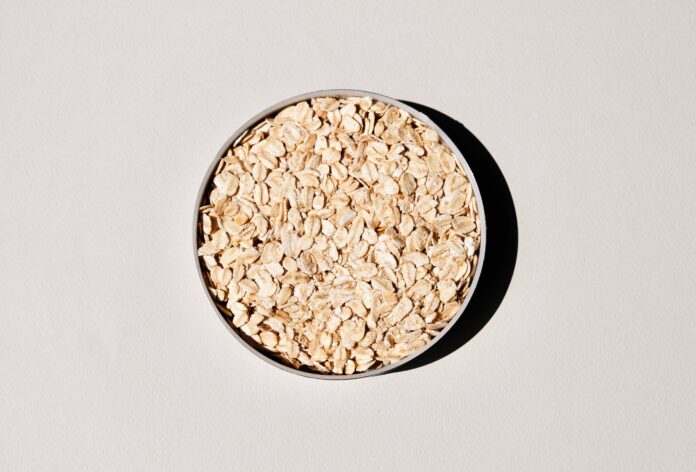
AN INCREASING number of people are finding it hard to make ends meet as the costs of living steadily rise. St Vincent de Paul say they are seeing more and more people who are having to choose between paying the electricity bill and buying food. Clearly going without good nutrition is simply not an option, as it could end up costing you in doctor’s bills. So perhaps the solution is to think outside the box. In this case, the cereal box.
The preferred choice for making a small budget go farther is often to stock up on corn flakes – a plan which may indeed be relatively cheap if you buy the budget brands, but comes with many pitfalls.
Firstly, they provide minimal nutrients as they are made with processed corn which has had much of its benefits stripped away during manufacturing. They have had salt and sugar added to enhance the flavour, with the processed corn already providing more than enough quick release starch as it is.
As a result, they tend not to maintain your energy levels for very long or even fill you up all that much, for that matter. So you are hungry again soon after.
They also lack the fibre needed to keep the digestive system regular and provide prebiotics for your good bacteria. Add non-organic cow’s milk, which brings its own problems, and a sprinkling of sugar on top and they fulfill the criteria for a dessert more than a nourishing meal.
A far better option, if you are looking at cereals, would be porridge oats. A slow release, warming, filling grain, oats are highly beneficial for the nervous system. They also provide silica for the digestive system and strong hair, nails, and skin, and are rich in soluble fibre. This is beneficial for bowel health but also for reducing bad cholesterol.
Not to mention, oats can be used in many more contexts than just a bowl of cereal. Add a fist of oats to homemade brown bread, sprinkle some oats into a smoothie to make it more sustaining, use them to make flapjacks or granola, or blitz them down to make a tasty crumb for home-made chicken goujons and fish fingers. This is the key to being fed well.
Be more strategic in what you buy. Try to choose ingredients that can be put to work in many different ways, rather than buying ready meals which only serve one, not very healthy, purpose.
The concept of fuelling up on starches is hardly a new one. Just about every culture around the world uses starch to provide energy – whether it’s in the form of pasta, polenta, rice, couscous, bulgar wheat, plantains, potatoes, chestnut flour, or breads in Indian, Chinese, Thai, and Italian cooking. But rather than relying solely on starch, which gives you a quick boost of energy without sustaining you for very long, it’s best to combine it with other slow-release foods.
Starches are usually relatively cheap, while slower release, protein-based foods like meat, nuts, seeds, fish, and cheese tend to be dearer. We have become so used to having meat every day, we see it as a measure of poverty not to be able to afford it.
I can’t stress enough, whole parts of the world survive without any meat, so clearly a lack of it is not detrimental to our health. It simply depends on what items you use as a replacement. Rather than expecting to have meat every single day, you are much better off, financially and nutritionally, to have it a couple of times a week at most, choosing better quality, organic meat, where possible.
Think of all the world cuisines which have a way of taking expensive ingredients, such as meat, and making it go farther by turning it into something very tasty like a stew, curry, goulash, paella, risotto, stir-fry etc.
None of these need meat to be the star of the show. Rather, it is one ingredient amongst many. The more slow-cooked dishes you make, the more tender a cheap cut of meat will be, infused with the flavour of all the other ingredients. Simply letting it simmer for hours will produce a sustaining pot of food for very little money. Or invest in a pressure cooker and get the same results while saving on your energy bills.
I come back to the same points every time when talking about good food and cost. If you buy food which is in season, it will be fresher, with more vitality, and cheaper because it is in abundance.
Keep an eye out for deals in the supermarkets, as this is a great opportunity to stock up on ingredients, make large batches of soups, stews, and so on, and freeze them.
You will get even better value if you go to your local market, with huge bags of apples, potatoes, carrots, onions, etc., costing you just a couple of euro.
Get to know your butcher and fishmonger again. They will always have deals on certain meats and fish and you can ask them for advice on cooking cheaper cuts, which invariably are tastier.
Let the deals decide what’s for dinner, rather than putting yourself under pressure to buy specific items driven by a pre-set meal plan. A little bit of flexibility could save you a lot of money. You’ll be amazed how much healthier your diet can be and at a fraction of the cost.


